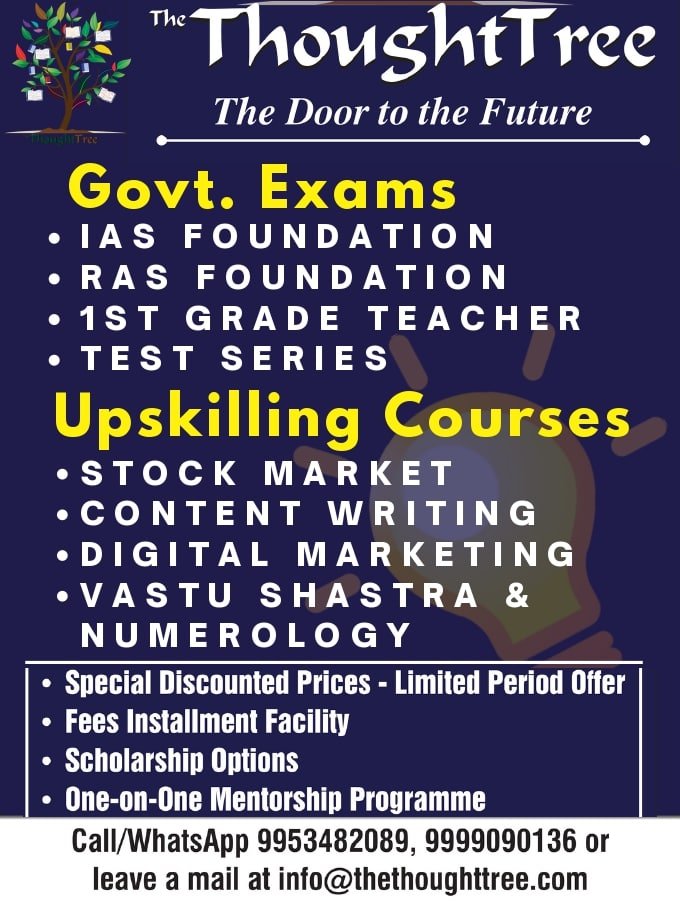Everyone knows that current affairs play an important role in the UPSC. Every year, the students ask many questions related to current affairs in Prelims, Mains and Interview rounds. The question “Which is the best newspaper for UPSC? or How to read Indian Express for UPSC?” is probably the first thing that crosses most of our minds every morning while preparing for the UPSC exams.
Today, in this article, we are going to discuss all these things in detail.
Importance of Reading Newspapers
By reading newspapers, multiple benefits can be gained from keeping up with current events. To begin, a newspaper is a medium that reports on national and local events and provides extensive coverage of the arts, culture, and sports. A significant part of the questions in UPSC can be covered by reading newspapers.
Newspapers are also an excellent resource for keeping up with current events in your area. To put it another way, Forex can keep you abreast of new store openings, sales, and, most crucially, job possibilities in your area.
A well-informed mind on all the latest global happenings is one of the greatest benefits of a daily newspaper reading habit and is a must for someone preparing for exams like UPSC. War, climate change, the economy, and national elections are all examples of serious concerns that may be covered in the news as a warning to the public. On the other hand, political scandals, celebrity gossip, and discussions over relatively insignificant issues might be included to fill the space. Use it to keep up with breaking news as it happens.
If you read the newspaper often, you’ll gain a thorough understanding of the issues at hand, be better prepared to express opinions about them, and be ready for their potential influence on your life should it ever materialise. This also helps you in answer writing.
It’s always a good idea to be prepared for whatever may come your way, whether you live in a bustling metropolis or a quiet rural hamlet. There may be stories about upcoming municipal elections and government initiatives. There are additional tales that may interest adolescents due to exceptional occasions, such as the inauguration of a new cafe or the unveiling of a public bridge or building.
Read More: Best Magazines to read for UPSC
Best Newspapers to Read for UPSC Preparations
There are a lot of newspapers circulating around in the market. But, I would suggest that – The Indian Express, The Hindu, The Times of India are some of the great newspapers for UPSC preparation.
In this article, we will focus on The Indian Express. Let’s see How to read Indian Express for UPSC.
How to Read Indian Express for UPSC?
General Tips
Read the paper while keeping the exam’s objectives in mind.
Typically, you can ignore the political, sporting, and “masala” news that fills the airwaves.
Find the central problem that drives the news stories. This is more of a study issue than a news story. For instance, the Advantages of this type of benefit transference, privacy as little more than a fundamental right, security concerns of a data breach, etc., are all essential elements in any study on the safety of the Aadhar card system because they relate to the underlying issue of data privacy.
Committee, Commission, Bill, Act, and Related News Is Crucial
You can improve both your writing and your reading comprehension by summarising the editorial.
It is crucial to have a firm grasp of the facts in order to do well in the Prelims.
First Page
The front page often contains the day’s most significant headlines. The story is continued on the following page. The front page also features state-specific news stories; check out the ones that interest you. You don’t have to pay any attention to politicians or their accusations.
Editorial Page
The editorial page is where you’ll find the essential stories when it comes to news coverage. Experts in their fields (journalists, editors, economists, lawyers, etc.) contributed to the content of these two pages.
The majority of the questions on the main exam are open-ended and solicit responses based on the examinee’s personal beliefs. The in-depth analysis presented in the editorial section should aid with such inquiries.
There is crucial information about the topic at hand on these pages. You can find both sides of an argument, as well as fresh takes on the problem and ideas for the future, here. These considerations will assist you in composing well-rounded responses for the Mains examination.
You can use the information on these sections to help you get ready for the Essay paper and the Interview. These pages contain information that will be useful for the Preliminary Exam.
Improving one’s reading ability also aids in doing well on the CSAT’s reading comprehension component.
Make sure you routinely take notes from OPED and Editorial.
Read More: How to Read The Hindu for UPSC?
Economic System
Use the articles on this page to better understand the material covered in the Prelims’ Economy section and the General Studies III paper’s economics-related themes. Questions in the Economics section of the Mains examination, as seen in sample tests from previous years, are frequently based on material from the media.
Sports Section
You should quickly review the major sporting events taking place in India and abroad. Preliminary exam questions rarely come from the reading articles area. It is important to keep up with technological developments by following the news about major league sports and any new innovations they may have incorporated.
World News
Use this page to learn about the latest global news and happenings. All articles that might be helpful to you in the exam should be read. Articles for the paper should then be chosen from the list of themes covered in the General Studies II paper’s syllabus, with specific attention paid to the sub-topics dealing with international relations.
You should only read about what’s going on in the rest of the globe if it has some bearing on India, either because of how that country treats India or because of how that country treats the Indian diaspora that lives there.
Read More: Mistakes to Avoid in UPSC Preparation?
So it can be said that the Indian Express is almost a complete newspaper that a UPSC aspirant needs to study for the preparations. The newspaper covers everything from National to International to Sports to politics etc. I hope you understand how to read Indian Express for UPSC. But as usual, newspaper reading can sometimes be very strenuous and boring. There may be times when you think that the news you’re reading could be clearer and you are not able to understand and make notes.
In such cases The Thought Tree is there to help you out. The Thought Tree provides a detailed analysis of all the important news, including editorials. The experienced team of T3 will provide you with summarised notes from daily newspapers, which will help you know the news and save your precious time. You can then invest this time in preparing something else for the UPSC exam.
Besides this, The Thought Tree also has a free library where you can sit and read newspapers, magazines, etc. All these featured makes The Thought Tree best IAS Coaching.





